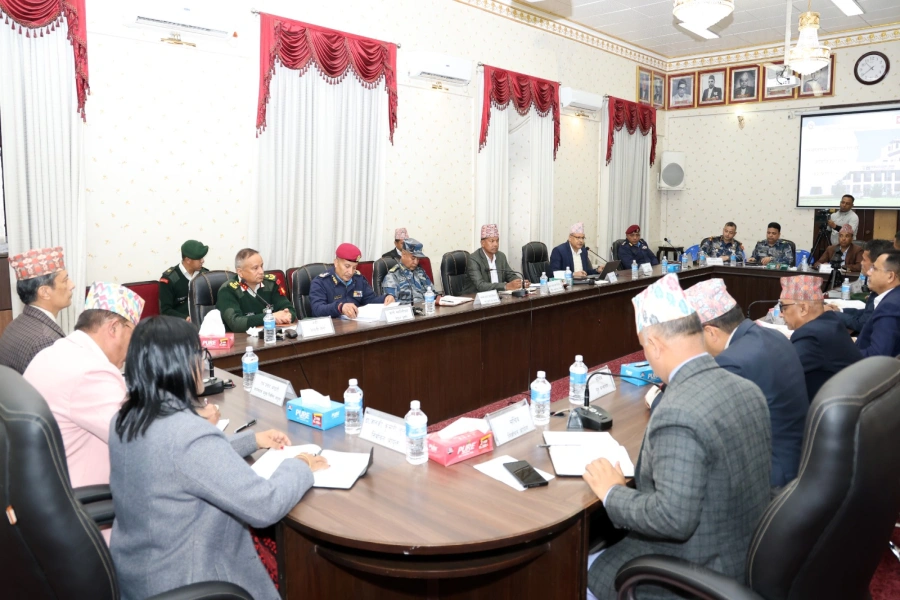Rabi Lamichhane’s political journey has been an emotional rollercoaster. A well-known television journalist, he surprised many by creating the Rastriya Swatantra Party (RSP) and entering politics. To everyone’s amazement, he won 20 seats in the House of Representatives through the general elections held on November 20 last year. Following his unexpected electoral success, Lamichhane and his RSP joined the new ruling coalition led by the CPN-UML, leading to his appointment as Deputy Prime Minister and Minister for Home Affairs in the Cabinet led by Maoist Center Chairman Pushpa Kamal Dahal. He achieved this remarkable political feat in just six months of forming a political party!
But last Friday, things took a turn for the worse for Lamichhane as the Supreme Court revoked his membership in parliament and Cabinet for failing to obtain Nepali citizenship after renouncing his US citizenship which he had got in 2014. On Sunday, in a bid to rectify the situation, Lamichhane re-acquired through the proper channels the Nepali citizenship he had first received in 1994 on the basis of lineage. He had obtained US citizenship after residing in the country for a few years. According to Section 10 (1) of the Nepal Citizenship Act 2063 BS (2006), once a Nepali citizen voluntarily becomes a citizen of another country, their Nepali citizenship is automatically annulled.
The court said just the same. Despite renouncing his US citizenship in 2018, the apex court ruled that his acquisition of Nepali citizenship was not valid due to his failure to fully complete the process. The court stated that Lamichhane had failed to submit a complete application with the necessary information to the District Administration Office concerned after renouncing his US citizenship, rendering his claimed citizenship invalid. As a result, he had to relinquish the posts of Member of Parliament (MP) and Deputy Prime Minister and Home Minister.
“We trust journalist Rabi Lamichhane but not Home Minister Rabi...

The recent controversy surrounding Lamichhane has sparked public interest and raised questions about the legality of his actions. Evidence suggests that Lamichhane used his invalid citizenship certificate to register a political party, run for office, and hold high-ranking positions, including that of home minister, which granted him access to sensitive government information. This raises the question of whether Lamichhane should be held accountable for committing forgery of a government document. Although he has resigned from his political positions, the fact remains that he obtained them through deceptive means. This raises concerns about the fairness of the legal system if a common citizen would face consequences for similar actions, but a popular public figure or politician is exempt. The case also raises important questions about the accountability of those in positions of power and the principles of justice.
Lamichhane’s citizenship saga continues to raise questions and curiosity. In 2018, he renounced his US citizenship after courting controversy. However, before that, he obtained a Nepali passport using his invalid citizenship certificate in 2015. Between 2016 and 2018, he held passports from at least two countries – the US and Nepal. Nepal’s Passport Act 2076 BS (2019) prohibits this, with Section 21 (A) stating that obtaining a passport through false information is an offense punishable by a fine of up to Rs 500,000, imprisonment of 1-3 years, or both. Lamichhane may have committed this offense while holding a US passport. The District Administration Office in Kathmandu has forwarded a complaint regarding the same to Nepal Police for investigation, but it remains unclear what actions they will take.
Amid all this, Lamichhane was reinstated to the post of chairman of RSP the same evening he re-obtained his citizenship certificate from the District Administration Office, Kathmandu. And it is said efforts are apparently underway to reappoint him as a Deputy Prime Minister and Home Minister, and get him reelected to the House of Representatives through a by-election in the near future. Nepal’s Constitution 2015 does allow a Nepali citizen (which Lamichhane formally became again last Sunday) to be appointed as a minister for six months and continue to the post if he/she is elected to parliament within those six months. But the question is: Is Lamichhane the right candidate for that at the moment, despite hundreds of other capabilities he may have? Wouldn’t it be a case of conflict of interest to appoint him as the home minister who can issue orders to the police organization which in turn is expected to investigate the complaints against him? Does that help to uphold the notion of the rule of law?
As a newspaper, we no doubt believe in the rule of law, among a set of other democratic norms and values. We also believe the authorities concerned will deal with the curious case of Rabi Lamichhane in such a way that the notion of the rule of law is upheld.


























-1200x560-1771928761.webp)










